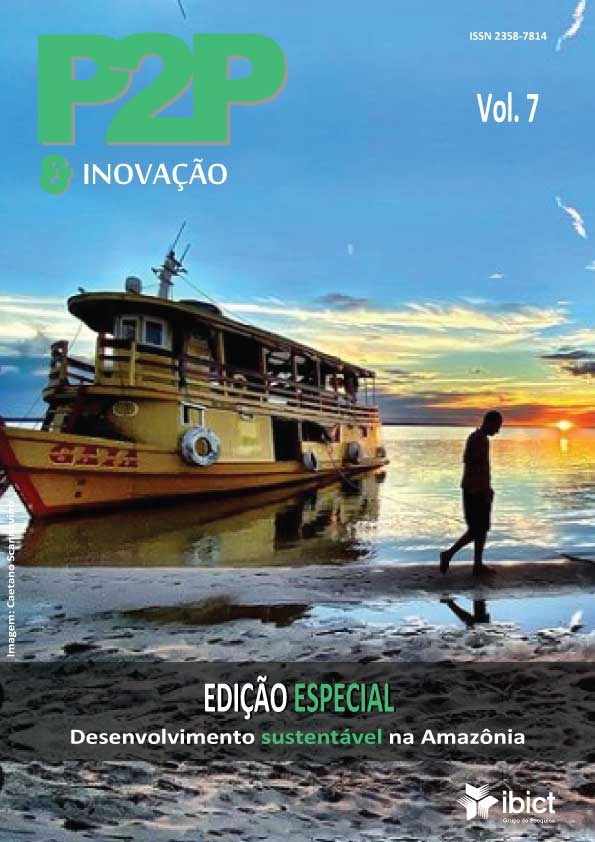The construction of Quilombola identity in Amazon
a study of school practices in guajará-miri, municipality of Acará, Pará
DOI:
https://doi.org/10.21721/p2p.2021v7n1.p151-168Keywords:
Identity, School, Quilombo, Guajará-MiriAbstract
The article focuses on and from the reality of the Amazonian quilombo Guajará-Miri located in the municipality of Acará in the state of Pará. It is anchored in the issues surrounding quilombola identity in school practices taking the community’s involvement in the school. This is a case study based on qualitative approach. The data were collected from observations, informal interviews and documentary examination. The interviews were carried out with two teachers and three quilombo’s residents. One of the residents is a retired teacher and creator of the first quilombola’s school in the community. Data analysis was performed using the critical-dialectic method. The research pointed out, among others outcomes, the following results: (a) there is an identity relationship between the residents and the school from the collective mobilization built in the Quilombo; (b) the residents and teachers have an affective bond with the school that produces sociability. The sociability has boosted innovative strategies that make identity belonging stand out and thus an improvement in the quality of learning-teaching processes in the school environment.
Downloads
References
BANTON, Michael. A Ideia de Raça. São Paulo: Edições 70, 1977.
BENTO, Maria Aparecida Silva. Branquitude e Branqueamento no Brasil. In: CARONE, Iray; BENTO, Maria Aparecida. (Orgs) Psicologia Social do Racismo: estudos sobre branquitude e branqueamento no Brasil. 6. ed. Petrópolis, RJ: Vozes, 2014. pp. 1-189.
BRASIL. CONFERÊNCIA NACIONAL DE EDUCAÇÃO (CONAE), 2010, Brasília, DF. Construindo o Sistema Nacional articulado de Educação: o Plano Nacional de Educação, diretrizes e estratégias; Documento Final. Brasília, DF: MEC, 2010. 164p. Disponível em:<http://conae.mec.gov.br/images/stories/pdf/pdf/documetos/documento_final_sl.pdf>. Acesso em: 24 de jan. de 2016.
BRASIL. Diretrizes Curriculares Nacionais para a Educação Quilombola. Parecer CNE/CEB nº 16 de 2012. Resolução nº 08, de 20 de novembro de 2012.
CAMPOS, Laís Rodrigues. Educação Escolar Quilombola e o Currículo Escolar Histórico-Cultural: olhares sobre as práticas educativas de um quilombo em São Miguel (PA). In: IV CONGRESSO IBERO-AMERICANO DE POLÍTICA E ADMINISTRAÇÃO DA EDUCAÇÃO / VII CONGRESSO LUSO BRASILEIRO DE POLÍTICA E ADMINISTRAÇÃO DA EDUCAÇÃO. Porto: Escola Superior de Educação do Politécnico do Porto, 2014. pp. 1-28.
CARVALHO, Roberto Monique Amâncio; LIMA, Gustavo Ferreira da Costa; Comunidades Quilombolas, Territorialidade e a Legislação no Brasil: uma análise histórica, Revista de Ciências Sociais, nº 39, pp. 329-346, out, 2013.
CASTELLS, Manuel. O poder da identidade. 5. ed. São Paulo: Editora Paz e Terra, 1996.
DECHAMPS, Jean-Claude; MOLINER, Pascal. A Identidade em Psicologia Social: dos processos identitário às representações sociais. Petrópolis, RJ: Vozes, 2014.
FANON, Frantz. Pele Negra, Máscaras Brancas. Salvador: EDUFBA, 2008.
FREIRE, Paulo. Extensão ou Comunicação. 13. Ed. São Paulo: Paz e Terra, 2006.
_______, Paulo. Pedagogia do Oprimido. 90. ed. Rio de Janeiro: Paz e Terra, 2016.
GOFFMAN, Erving. Estigma: notas sobre a manipulação da identidade deteriorada. 4. Ed. Brasil: LTC, 1988.
HALL, Stuart. A identidade cultural na pós-modernidade. Rio de Janeiro: DP & A, 2006.
MALCHER, Maria Albenize Farias; NAHUM, João Santos. A Formação das Comunidades Negras Rurais de São Judas e Cravo, no Estado do Pará. In: XVI Encontro Nacional dos Geógrafos. Porto Alegre: Anais. 2010. pp. 1-12.
MELO, Zélia Maria de. Os Estigmas: a deterioração da identidade social. 2000.
MUNANGA, Kabengele. Negritude: uso dos sentidos. Belo Horizonte: Autêntica Editora, 2012.
_________, Kabengele. Rediscutindo a Mestiçagem no Brasil: identidade nacional versus identidade negra. 4. Ed. Belo Horizonte: Autêntica Editora, 2015.
_________, Kabengele; GOMES, Nilma Lino. O negro no Brasil de hoje. São Paulo: Global, 2006.
SEVERINO, Antônio Joaquim. Metodologia do Trabalho Científico. – 23° ed. São Paulo: Cortez, 2007.
TRIVIÑOS, Augusto Nibaldo Silva. Introdução à Pesquisa em Ciências Sociais: a pesquisa qualitativa em educação. – São Paulo: Atlas, 1987.
Downloads
Published
Issue
Section
License
The journal is published under the Creative Commons - Attribution - Noncommercial - Share Alike 3.0 Brazil.
The published work is considered collaboration and therefore the author will not receive any remuneration for this as well as anything will be charged in exchange for publication.
All texts are responsibility of the authors.
It’s allowed partial or total reproduction of the texts of the magazine since the source is cited.














